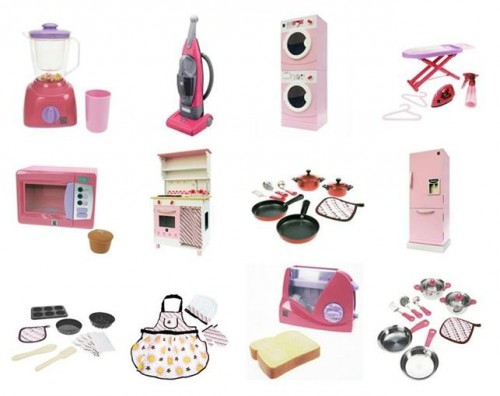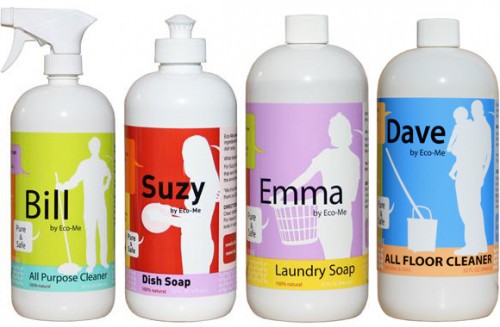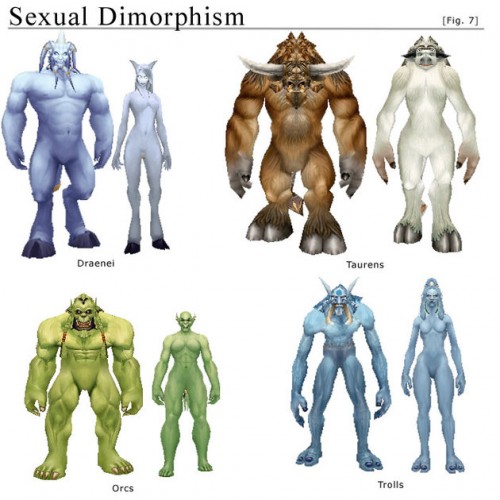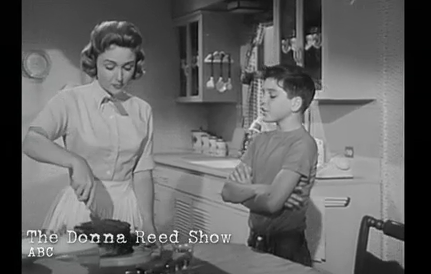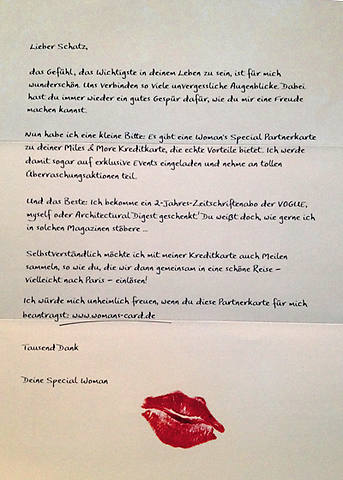Sociologists use the term “stalled revolution” to describe how current state of the feminist movement. It’s “stalled” in that, while women are (mostly) free to do what men do, men have been much more reluctant to do what women have traditionally done. This makes sense because masculine things are generally valued and feminine things are not.
Housework is one of these things. Married women still do twice as much housework and childcare as their husbands, on average. If you used advertising as your metric, however, you’d think that women did 99%. Here are three examples and a counter-example:
1. Monica C. sent in an Olympics-themed content sponsored by Pampers. It’s called the “Mommy Games,” as if only women parent:
2. Appliance maker Kenmore has a children’s line, sent in by Anna C. All of the products are in pink:
3. Allison spotted the same phenomenon at Hoover. They are inviting “real women” to submit vacuum stories:
4. As a counter-example, Kristie McC. sent in a screenshot of Eco-Me products. The company make a point of putting images of both men and women on their cleaning products.
So, there are exceptions, but the overwhelming message is that parenting and childcare is something that women do. For more, see our gendered housework/parenting page on Pinterest.
Lisa Wade, PhD is an Associate Professor at Tulane University. She is the author of American Hookup, a book about college sexual culture; a textbook about gender; and a forthcoming introductory text: Terrible Magnificent Sociology. You can follow her on Twitter and Instagram.



